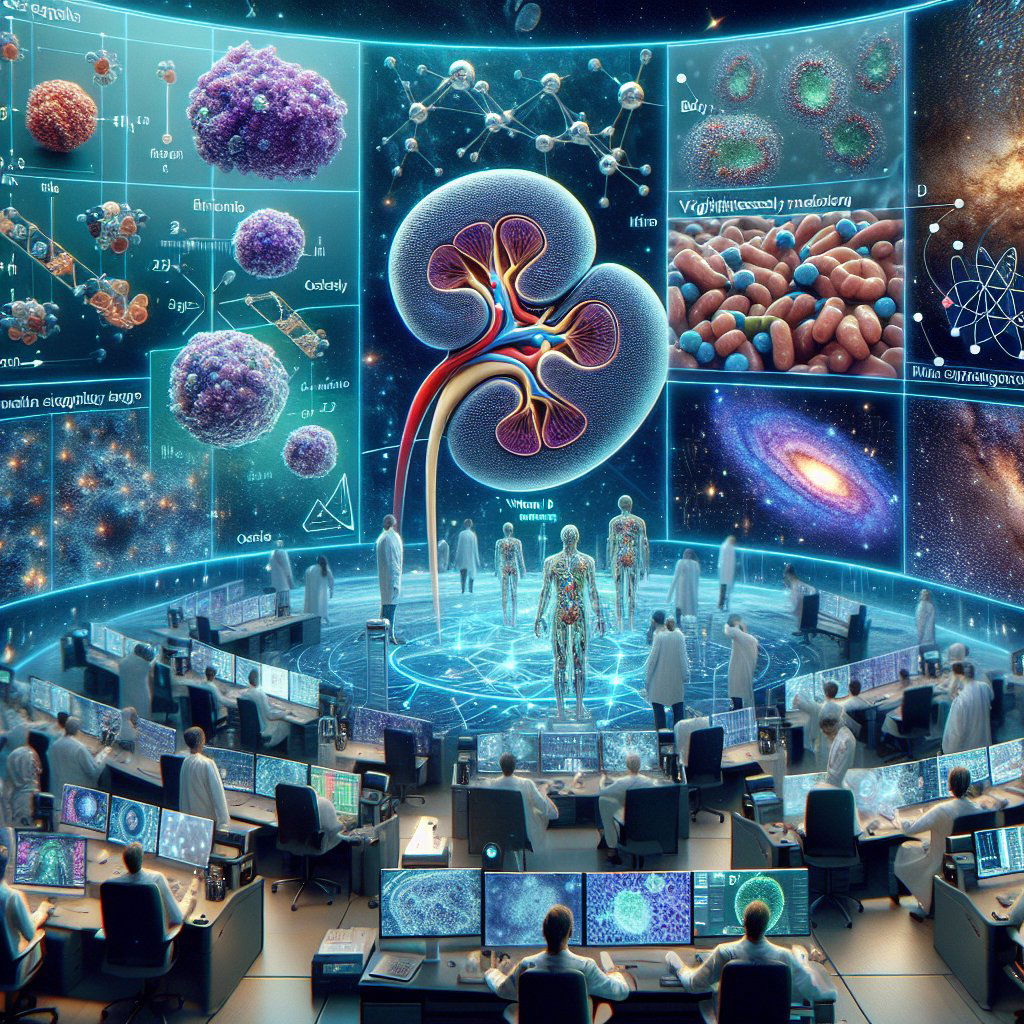Image created by AI
Space Age Kidney Health and Cosmic Clues: A Journey from Microgravity to Dark Matter
In the boundless realm of space, scientists are unraveling the mysteries not just of the universe but also of human health under unique conditions. Recent research provides reassuring news for astronaut kidney health, while cosmic ray data offers tantalizing hints at the universe's unseen matter.
A deep dive into how microgravity affects kidney cells has yielded surprising results, quelling concerns regarding fundamental biochemical pathways, especially vitamin D metabolism. This significant discovery by scientific researchers indicates that space's weightless environment does not notably impact these essential functions within kidney cells. This insight is crucial for astronaut health during prolonged space missions and has important implications for managing kidney-related diseases back on Earth.
The research stems from the observation that astronauts returning from space often exhibit bone loss, a condition potentially linked to kidney cell metabolism and vitamin D processing. The prevailing thought was that microgravity could disrupt these metabolic pathways, contributing to the bone density reduction observed in astronauts. However, the recent study suggests that this is not the case—a revelation that invites further examination, particularly into the effects of long-term exposure to microgravity beyond six months.
On a complementary note, the Alpha Magnetic Spectrometer (AMS-02) has gathered vast amounts of cosmic ray data between May 2011 and April 2021, yielding over 180 billion events. The recent analysis of these cosmic rays, specifically cosmic deuterons, has granted researchers a more precise understanding of their behavior. Deuterons, alongside protons, paint a picture of the universe's infancy following the Big Bang. Their study is now propelling the quest to detect dark matter, a mysterious and invisible substance thought to constitute the majority of the universe's mass.
Switching from the cosmic to the cellular, scientists have been examining protein changes in rodents to understand how spaceflight affects muscle and bone physiology. In an ambitious project led by JAXA's Medical Proteomics, blood, bone, and muscle samples from mice following space missions were scrutinized to pinpoint proteins linked to bone loss — findings that are instrumental in grasping the body's adaptations to spaceflight. By uniting data from astronauts, these space-traveling rodents, and patients on Earth, researchers hope to shed light on the interplay between microgravity-induced bone loss and similar conditions experienced by patients on terra firma.
Each study is a piece of a greater puzzle: understanding human health and cosmic operations. Whether assessing astronaut kidney function or deciphering the universe's dark secrets, these finding not only chart the unknown in space but also offer applications that could benefit life back on our home planet.










